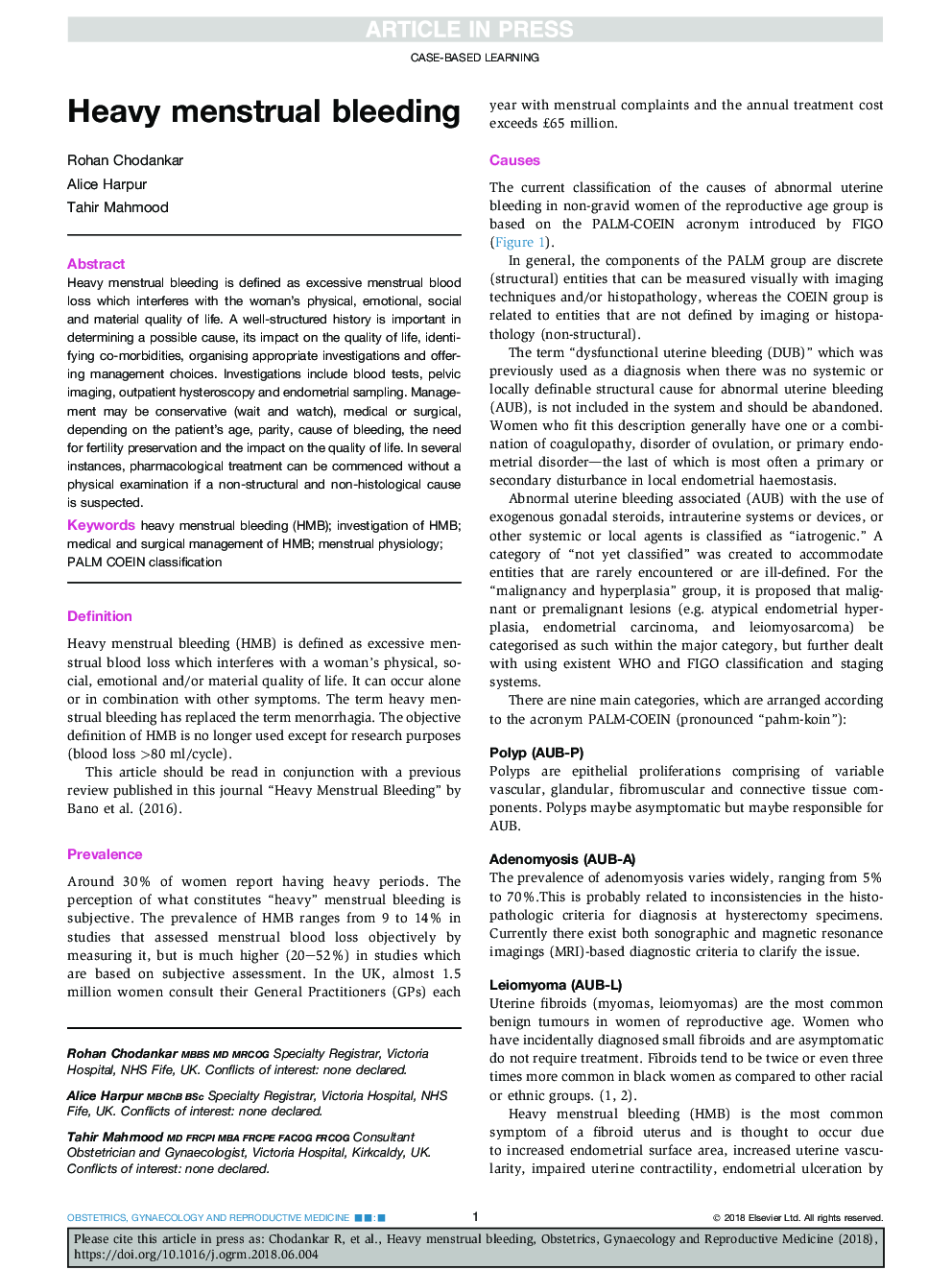| Article ID | Journal | Published Year | Pages | File Type |
|---|---|---|---|---|
| 8783377 | Obstetrics, Gynaecology & Reproductive Medicine | 2018 | 7 Pages |
Abstract
Heavy menstrual bleeding is defined as excessive menstrual blood loss which interferes with the woman's physical, emotional, social and material quality of life. A well-structured history is important in determining a possible cause, its impact on the quality of life, identifying co-morbidities, organising appropriate investigations and offering management choices. Investigations include blood tests, pelvic imaging, outpatient hysteroscopy and endometrial sampling. Management may be conservative (wait and watch), medical or surgical, depending on the patient's age, parity, cause of bleeding, the need for fertility preservation and the impact on the quality of life. In several instances, pharmacological treatment can be commenced without a physical examination if a non-structural and non-histological cause is suspected.
Related Topics
Health Sciences
Medicine and Dentistry
Obstetrics, Gynecology and Women's Health
Authors
Rohan Chodankar, Alice Harpur, Tahir Mahmood,
